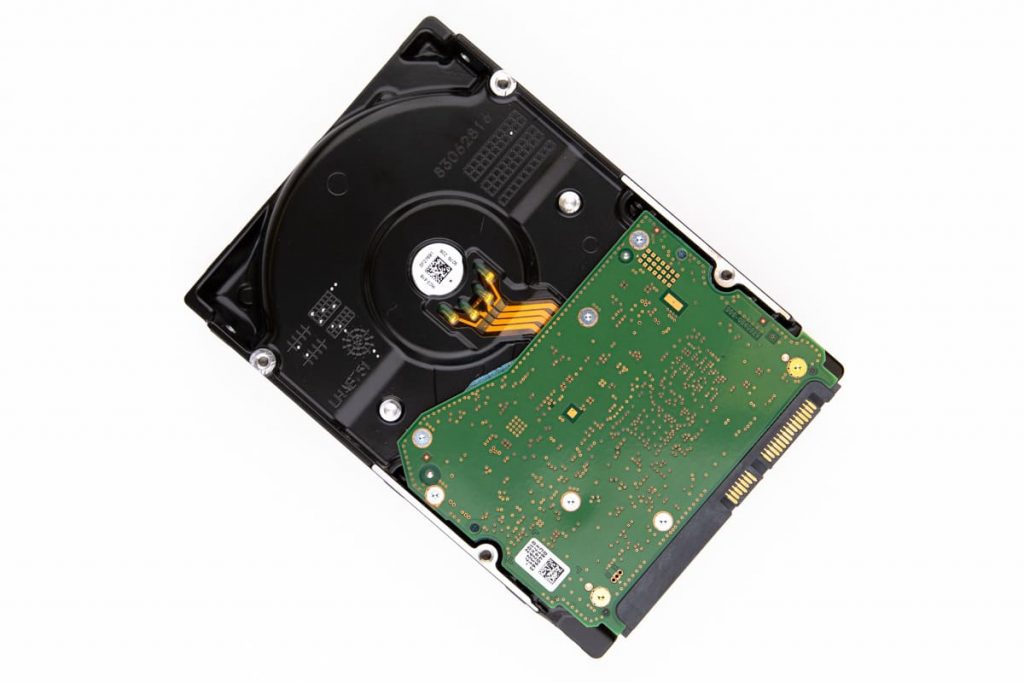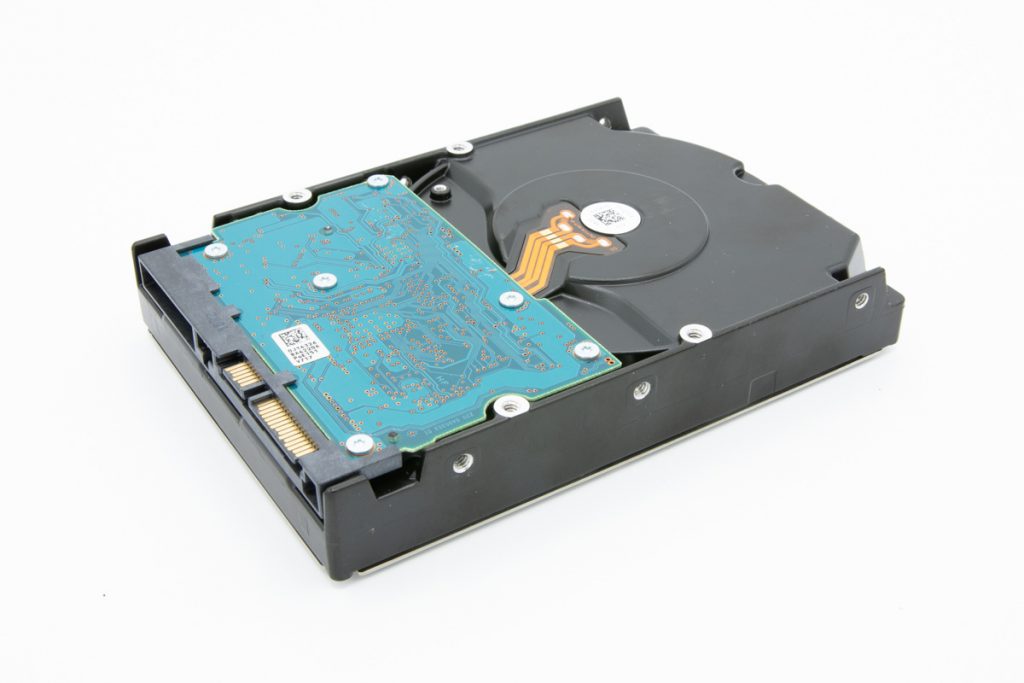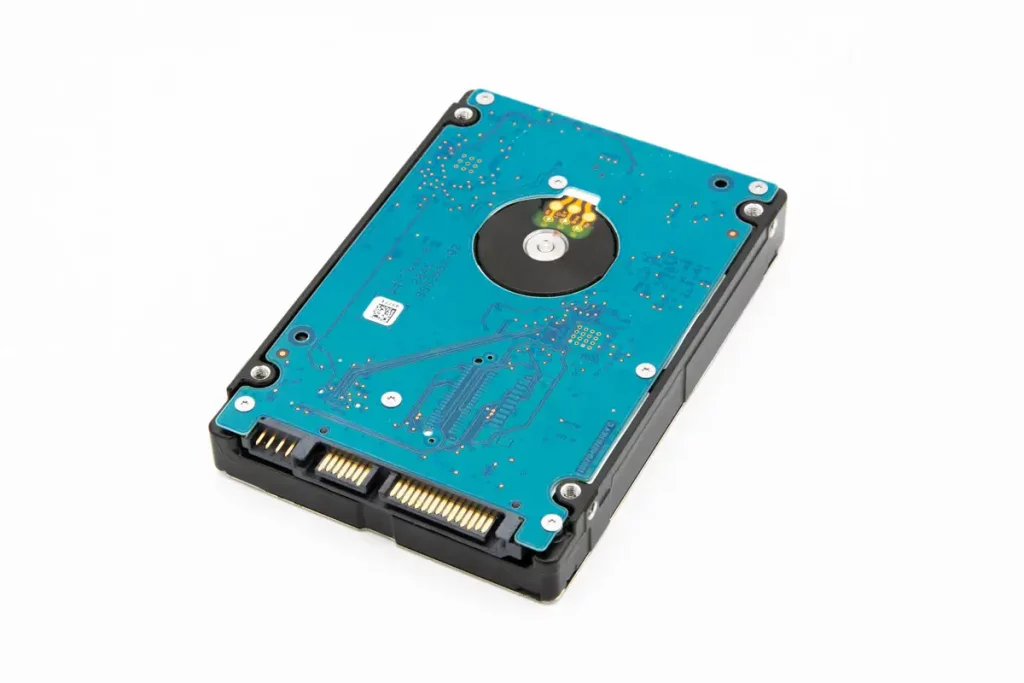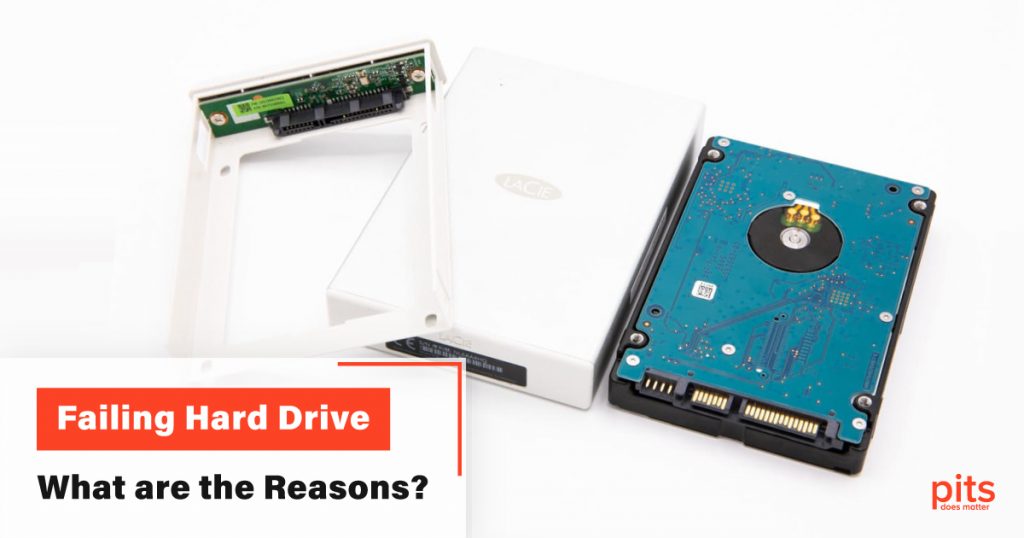A failing hard drive is one of the most frustrating things to happen to a computer user. It can cause loss of important data, slow performance, and render the computer unusable. In this blog post, our team will explore the reasons behind failing hard drives and provide some tips on how to check if your hard drive is failing.
5 Reasons for Failing Hard Drives
Hard drives can fail for different reasons, and comprehending these causes can help you prevent data loss and make instructed decisions about data storage. Here are five common causes for failing hard drives:
Physical Damage
Physical damage is one of the most common reasons behind failing hard drives. Hard drives are made up of delicate components that can be damaged due to drops, bumps, or other impacts. The read/write head is the most vulnerable component, which hovers over the platters and can be damaged if the hard drive is bumped or dropped. Additionally, hard drives can be damaged by exposure to extreme temperatures, humidity, or moisture.
Manufacturing
Age
Electrical Surges
Electrical surges can cause damage to the delicate components of a hard drive. This can happen due to lightning strikes or power outages.
It is important to use surge protectors to help prevent damage from electrical surges.

Virus or Malware Infections
Viruses and malware can cause all sorts of issues on a computer, including hard drive failure. Some malware is designed to specifically target hard drives, causing damage that can lead to loss.
Hard Drive Failure Preventative Measures
Keep your computer clean and dust-free
Dust and other debris can accumulate inside your computer and cause overheating, damaging your hard drive. To prevent this, you should regularly clean the inside of your computer with compressed air or a soft brush.
Keep your computer in a cool and dry place
Heat and moisture can damage your hard drive. Ensure your computer is in a cool, dry place with good airflow.
Handle your hard drive with care
Hard drives are sensitive and can be damaged easily. Avoid dropping your computer or moving it while it is still running, as this can damage the hard drive.
Install antivirus software
Viruses and malware can cause hard drive failure by corrupting files and damaging the hard drive. Make sure you have an up-to-date antivirus software installed and run regular scans to keep your computer protected.

Back up your data regularly
Backing up your data regularly can help you prevent data loss in case of hard drive failure. You can use an external hard drive, cloud storage, or a backup service to keep your data safe.
Update your operating system and drivers
Outdated software can cause hard drive failure by causing conflicts and system errors. Make sure your operating system and drivers are up to date to prevent issues.
Avoid power surges
Power surges can damage the electrical components of your computer and cause hard drive failure. Use a surge protector to protect your computer from power surges.
How to Check if Your Hard Drive is Failing - Failing Hard Drive Symptoms
Strange Noises
One of the most common warning signs of a failing hard drive is weird noises. If you hear clicking, grinding, or whirring noises coming from your hard drive, it is likely that the read/write head is failing or the platters are damaged.
Slow Performance
Another warning sign of a failing hard drive is sluggish performance. If your desktop or laptop takes a long time to boot up or access files, it may be a sign that the hard drive is failing. This can be due to the read/write head’s inability to access the data on the platters.
Blue Screen of Death
If you note a blue screen of death on your computer, it can be a sign of a failing hard drive. This is because a critical system error often causes the blue screen of death.
Error Messages
If you see error messages when trying to access files or programs, it can be a sign of a failing hard drive. These error messages include “file not found” or “disk read error.”

S.M.A.R.T. Status
Most modern hard drives have a feature called S.M.A.R.T., which monitors the hard drive’s health. If the S.M.A.R.T. status highlights that the hard drive is failing, it is important to back up your data as soon as possible.
A failing hard drive can be frustrating. However, by understanding the reasons behind failing hard drives and knowing how to check if your hard drive is failing, you can take steps to prevent data loss and avoid the headache of a failing computer.
Failing Hard Drive Data Recovery with PITS
PITS Global Data Recovery Services is a top-level provider of data recovery services for failing hard drives. Our team understands that data loss can be a devastating experience, and we are dedicated to helping our clients recover their important data quickly and efficiently. Our experienced data recovery specialists use the latest tools and techniques to recover data from even the most damaged hard drives.
We specialize in recovering data from hard disks of all types, including hybrid, helium, and external hard drives. Our team has experience with physically and logically damaged drives. Hence, if your drive has bad sectors, data corruption, a power surge, or a head crash, we will help.
Our Data Recovery for Failed Hard Drives - Process
Evaluation
We offer a risk-free evaluation of your failed hard drive to determine the cause of the failure and the potential for data recovery.
Data Recovery
Our engineers use the latest tools and techniques to recover lost data from even the most damaged storage devices. Once we have evaluated your hard drive, we will provide you with a quote for data recovery.
Verification
After the data has been recovered, we verify the integrity of the recovered data to ensure that it is complete and accurate.
Delivery
Once the recovered data has been verified, we deliver it to you in the format of your choice, whether that be on a new hard drive, a USB drive, or via secure online transfer.
Our team of data recovery specialists has years of experience in recovering data from all types of failed hard drives. We can work on any operating system and file system, including NTFS, FAT32, and others.
We use the latest methods to recover data from even the most damaged hard drives. Moreover, our team understands the importance of confidentiality regarding your data. We take every precaution to ensure your valuable data remains secure and confidential throughout the recovery process.
If you are experiencing a hard disk failure and need data recovery services, contact PITS Global Data Recovery Services instead of using data recovery software. Our skilled data recovery specialists will recover your files from crashed, non-functional, or corrupted hard drives. Contact us today for more information about our services and how we can help you recover your data.
Frequently Asked Questions
What is a failing hard drive?
A failing hard drive refers to a storage device, typically found in computers, that is experiencing issues or malfunctions that prevent it from functioning properly. It may exhibit symptoms such as slow performance, data corruption, or complete failure to boot up.
What are the common reasons for a hard drive to fail?
Mechanical Failure: Hard drives consist of moving parts, including spinning disks and read/write heads. Over time, these components can wear out or become damaged, leading to mechanical failure.
Firmware Corruption: The firmware on a hard drive controls its operations. If the firmware becomes corrupted due to a software bug, power failure, or other reasons, it can cause the drive to malfunction or fail.
Overheating: Excessive heat can damage the delicate components of a hard drive. Poor ventilation, overclocking, or environmental factors can lead to overheating and subsequent hard drive failure.
Power Surges: Sudden power surges or voltage fluctuations can damage the electronic components of a hard drive, rendering it inoperable.
Logical Errors: Errors in the file system, operating system, or software can result in data corruption or the inability to access data on the hard drive.
Bad Sectors: Over time, certain sectors on a hard drive may become physically damaged, leading to read/write errors and data loss.
Age and Wear: Like any mechanical device, hard drives have a limited lifespan. With regular use, they can wear out over time, resulting in decreased performance or complete failure.
How can I prevent a hard drive failure?
Backup your data regularly: Make sure to maintain up-to-date backups of your important files and data. This will help mitigate potential data loss in the event of a hard drive failure.
Keep your system cool: Ensure that your computer or storage system has proper ventilation and is kept in a cool environment to prevent overheating.
Use a reliable power supply: Invest in a good-quality surge protector or uninterruptible power supply (UPS) to protect your hard drive from power surges or outages.
Avoid physical shocks: Handle your computer and hard drive with care, avoiding dropping or subjecting them to physical shocks that could damage the internal components.
Regularly update and maintain your system: Keep your operating system, drivers, and firmware up to date. Regularly scan your hard drive for errors and perform necessary maintenance tasks.
What should I do if my hard drive is failing?
Back up your data immediately: If you haven’t already, make a backup of all your important files and data. Use an external storage device or cloud storage to store the backup.
Consult a professional: If you are not familiar with computer hardware, it is advisable to seek assistance from a professional data recovery service or a computer technician. They can help assess the extent of the damage and recommend the best course of action.
Replace the hard drive: If your hard drive is beyond repair, you will need to replace it with a new one. Ensure that you choose a compatible hard drive and consider seeking professional help to transfer your data from the failing drive to the new one.
Can I recover data from a failing hard drive?
In some cases, it is possible to recover data from a failing hard drive. However, it requires specialized knowledge and equipment. It is recommended to contact a professional data recovery service, as they have the expertise to handle such situations and increase the chances of successful data retrieval.
